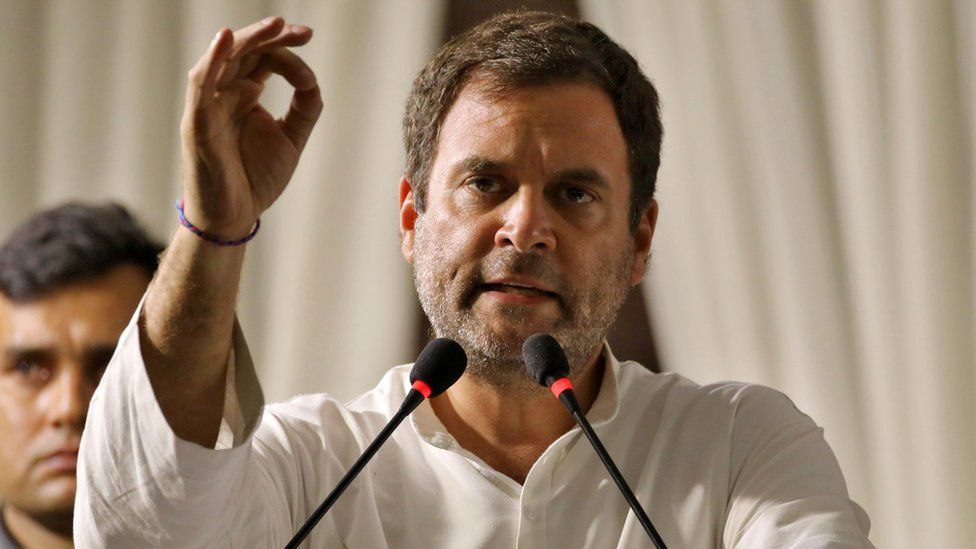In the aftermath of recent elections, Rahul Gandhi, Leader of the Opposition (LoP), has emerged as a prominent figure in Indian politics. His proactive stance and increased visibility have sparked discussions on whether he can effectively lead the entire opposition front against the ruling NDA coalition. However, amidst the optimism surrounding Gandhi’s leadership, a critical analysis of electoral dynamics and broader implications for Indian politics reveals both opportunities and challenges.
Electoral Dynamics and Political Landscape
The recent elections saw the BJP retaining a significant share of the popular vote, losing only 1.2% compared to the Congress’s gain of 1.49%. Despite the Congress’s marginal increase in vote share, the BJP remains dominant with 240 seats, underscoring its continued electoral prowess after a decade in power. The pre-poll alliance of the NDA secured a clear majority, allowing Prime Minister Narendra Modi to begin his third consecutive term. These electoral outcomes highlight a nuanced political landscape where incremental shifts in vote share do not necessarily translate into substantial gains or losses.
Rahul Gandhi’s Leadership and Strategic Approach
Rahul Gandhi’s ascendancy as a leader has been marked by a proactive engagement with grassroots issues and a visible presence in national discourse. His efforts to rejuvenate the Congress party and galvanize opposition forces reflect a strategic shift towards more assertive leadership. Gandhi’s willingness to directly engage with diverse segments of society contrasts with previous perceptions of detachment, signaling a calculated effort to bridge the gap between party rhetoric and public sentiment.
Challenges Confronting Rahul Gandhi
Despite his growing influence, Rahul Gandhi faces several formidable challenges that could impact his effectiveness as the leader of the opposition:
- Coalition Management: Leading a heterogeneous opposition coalition requires adept management of divergent interests and ideologies. Gandhi must navigate complex coalition dynamics to foster unity and strategic cohesion among opposition parties.
- Policy Articulation: Effective opposition leadership necessitates clear articulation of alternative policies and governance frameworks. Gandhi’s ability to present a coherent vision for socio-economic development and inclusive growth will be pivotal in resonating with a diverse electorate.
- Electoral Strategy: While the Congress party’s incremental gains are noteworthy, Gandhi must guard against complacency and continue to refine electoral strategies to broaden the party’s appeal across diverse demographics and regions.
- Alliance Building: Strengthening alliances with regional parties and smaller political entities is crucial for countering the NDA’s consolidated strength. Gandhi’s capacity to forge strategic partnerships and alliances beyond traditional party lines will be instrumental in expanding the opposition’s electoral footprint.
Strategic Imperatives and Future Prospects
As Rahul Gandhi assumes a pivotal role in shaping India’s political landscape, his leadership journey underscores the evolving dynamics of opposition politics. The imperative lies in leveraging electoral gains to consolidate opposition unity, articulate a compelling policy agenda, and foster strategic alliances. Gandhi’s leadership must transcend conventional political paradigms to offer a credible alternative to the ruling dispensation, thereby revitalizing democratic discourse and accountability.
In conclusion, Rahul Gandhi’s emergence as a formidable opposition leader signifies a transformative phase in Indian politics. While his proactive leadership style and electoral gains have bolstered his political stature, the path forward demands astute coalition management, visionary policy articulation, and sustained engagement with diverse stakeholders. The coming years will test Gandhi’s ability to navigate political complexities and forge a cohesive opposition front capable of addressing the aspirations and concerns of a dynamic electorate.

